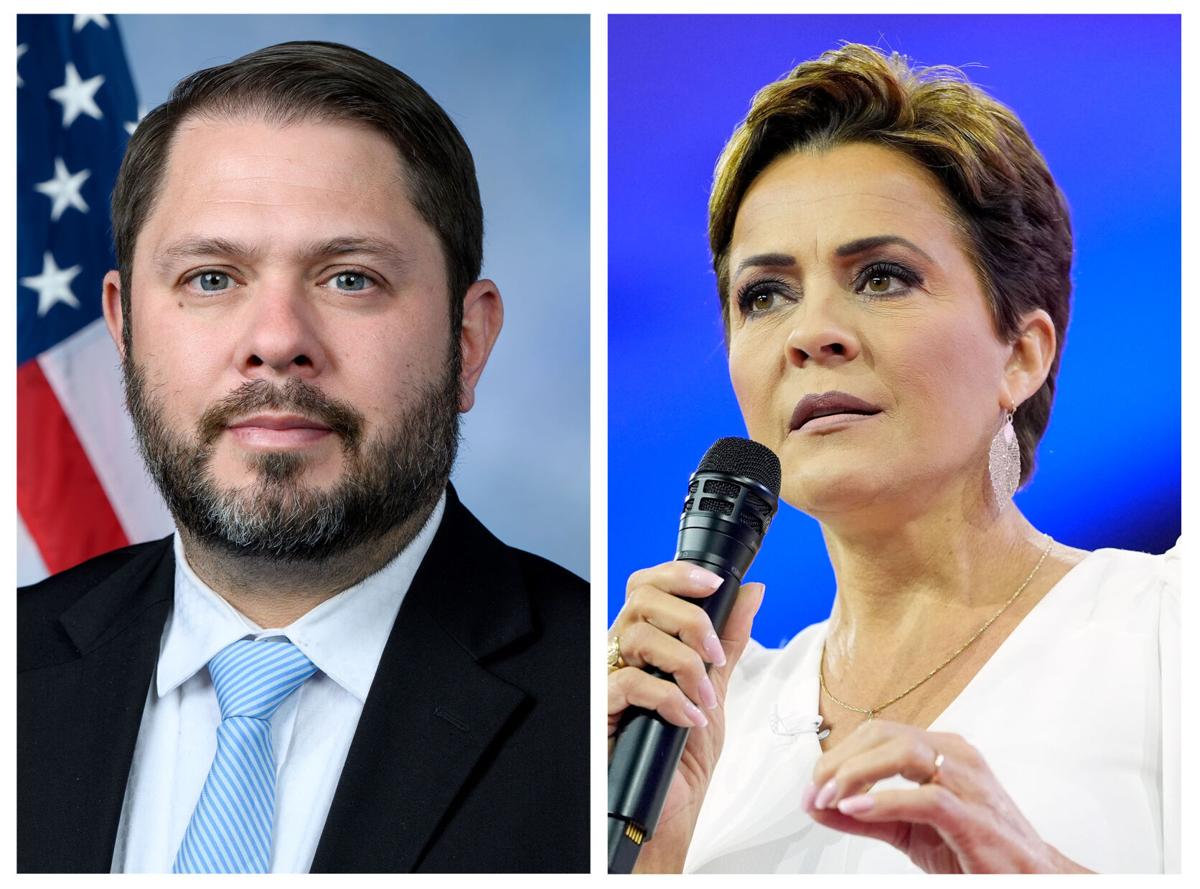Democrat Ruben Gallego is all-in on holding a Clean Elections debate with his challenger in the race for an open U.S. Senate seat.
Republican Kari Lake, maybe not so much.
On Friday, Gallego’s campaign told the Arizona Clean Elections Commission, which holds candidate debates that are widely viewed across the state, that’s he’s prepared to participate under their standard format. But Lake’s campaign has been hesitant to agree, although a campaign spokesman said they are in ongoing “productive conversations” about a Clean Elections debate.
The state commission initially asked all candidates to respond by Friday to scheduling requests. That deadline, however, wasn’t a hard one. And the commission, at the behest of Lake — who has declined to commit so far one way or the other — agreed to give her another week to make up her mind.
What makes Lake’s balking significant is it comes just two years after a dust up when Democrat Katie Hobbs, her foe in the gubernatorial race, refused to face off against her. Arizona PBS, which was hosting the Clean Elections debates at the time, responded by giving Lake what amounted to a half-hour interview.
But the situation was exacerbated by the decision of the station to give Hobbs her own half-hour interview despite her refusal to abide by Clean Elections rules.
That decision, however, was not made by Clean Elections. And the commission in response quickly ended its long-running partnership with PBS to air its debates.
Lake spent much of the remainder of the campaign slamming Hobbs, who eventually pulled out a slim victory, for refusing to debate. For her part, Hobbs’ campaign said any debate with Lake would be a “spectacle.’’
This year, Clean Elections announced a new partnership to produce, air and distribute their debates through the Arizona Media Association. Debates were simulcast on multiple television stations before July’s primary election and general election debates will also air statewide on multiple outlets.
Now, however, the shoe is on the other foot for Lake, and she’s apparently dragging her feet.
Gallego, for his part, is taking full advantage of her failure to decide, saying he is looking forward to participating in the Clean Elections debate “in keeping with Arizona tradition.’’
“I believe Arizonans deserve to hear firsthand about the choice in this election between a Marine combat veteran with a lifetime of service and someone who is only in this race for herself,’’ he said in a prepared statement. “I will spend the next 80 days laser-focused on bringing Arizonans across the political spectrum together to build a better Arizona.’’
In a U.S. Senate race that has already seen millions of dollars in television advertising with much more to come, a debate would be the only chance for voters — both undecided and those already committed to a candidate — to see them lay out policy and display their personalities in a side-by-side faceoff. And the result of the election could determine which party controls the Senate.
Gallego’s announcement is not a surprise.
Before Friday, he had publicly said he’s ready to participate in a Clean Elections debate with Lake. But so far Lake’s only public comments since the primary have made it clear she’s still upset with the commission, even though the decision to give time to Hobbs was not the panel’s doing.
She told NBC News earlier this month that she wants to find “a fair place, a fair platform to do that.’’
Not doing a debate is politically risky for Lake, who is trailing big in fundraising and behind in all non-partisan polls. A poll sponsored by Republicans and released this week showed the race even, while one released early this month by HighGround, an Arizona consulting and polling firm not affiliated with either campaign, showed Gallego up by 11 percentage points.
“I think it would be a missed opportunity for Kari Lake to not engage Ruben in a debate,’’ said Mike Noble, who runs a different Phoenix-based political polling firm.
“He has four times the amount of cash on hand,’’ Noble said.
“He has the better image right now among the electorate,’’ he continued “And he has the advantage of polling. Based on these factors, why would she not debate?’’
Noble said it would be a “big win for Ruben if Kari doesn’t debate.’’
And Stan Barnes, a Republican political consultant and lobbyist, said if Lake refuses to debate, it would be “a head-scratcher to me.”
Barnes noted that Lake was well ahead of her primary challenger, Pinal County Sheriff Mark Lamb, in both money and refused to debate him.
“Typically, you don’t debate if you have the advantage,’’ Barnes said, “Now she’s in the juxtaposed position, and she’s not going to debate?’’
Whether Lake agrees or not, Gallego will get a chance to use that air time under rules adopted by the Citizens Clean Election Commission, a public board that is required by law to oversee pre-election debates.
Skipping a Clean Elections debate would have been highly unusual before 2022.
The voter-created commission, which funds candidates that agree to forego private campaign funding, oversees many campaign finance rules and does voter outreach, including the debates, has done them for two decades and most major candidates signed on.
But starting in recent years, debates became easier for candidates to skip in Arizona and across the country. Some Republicans were just avoiding mainstream media events and some Democrats like Hobbs pointed to issues with GOP candidates, as she did.





